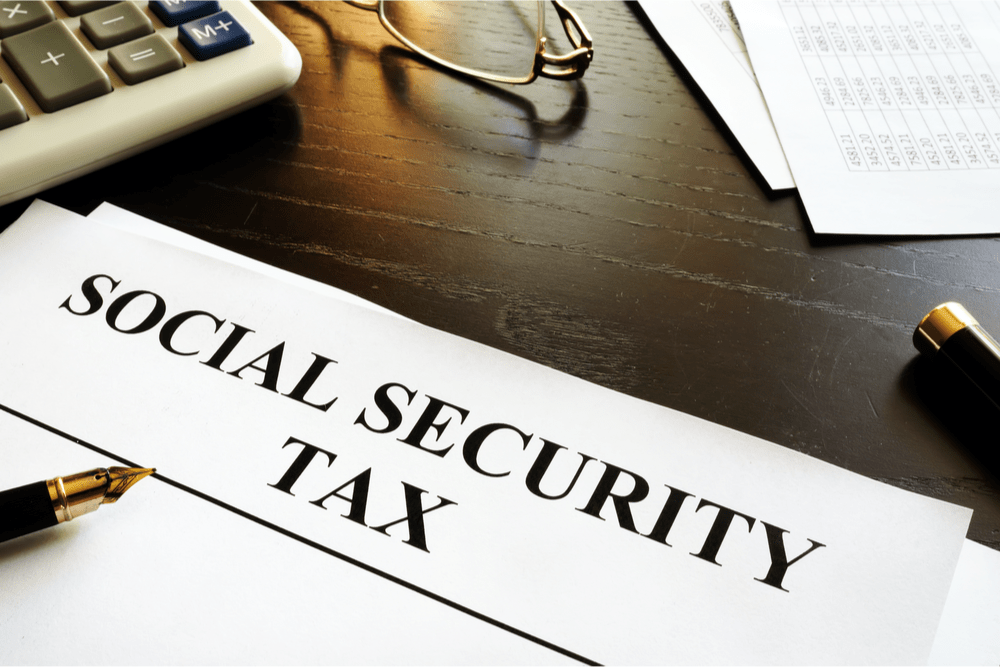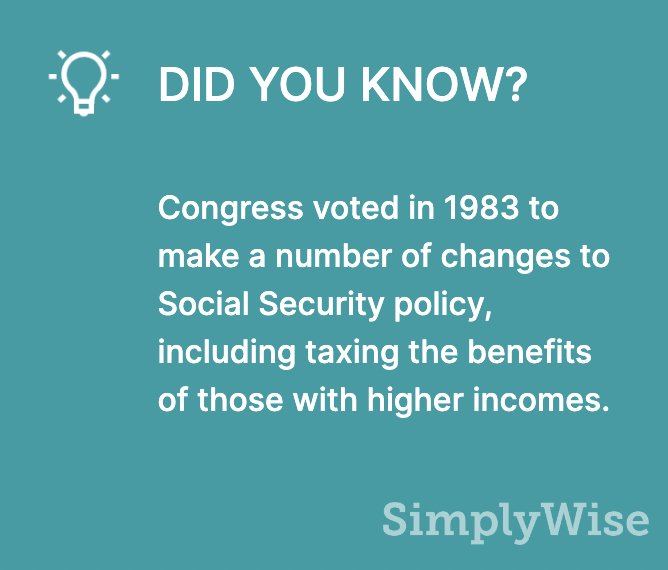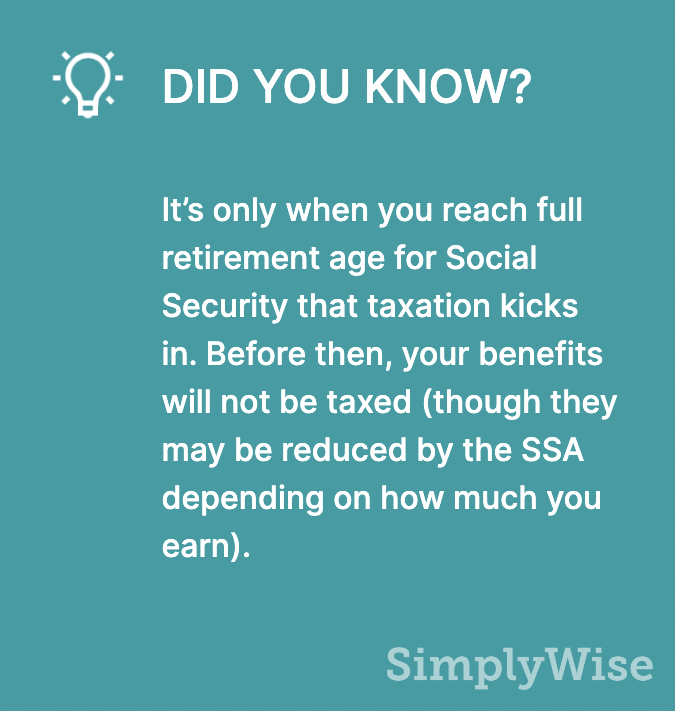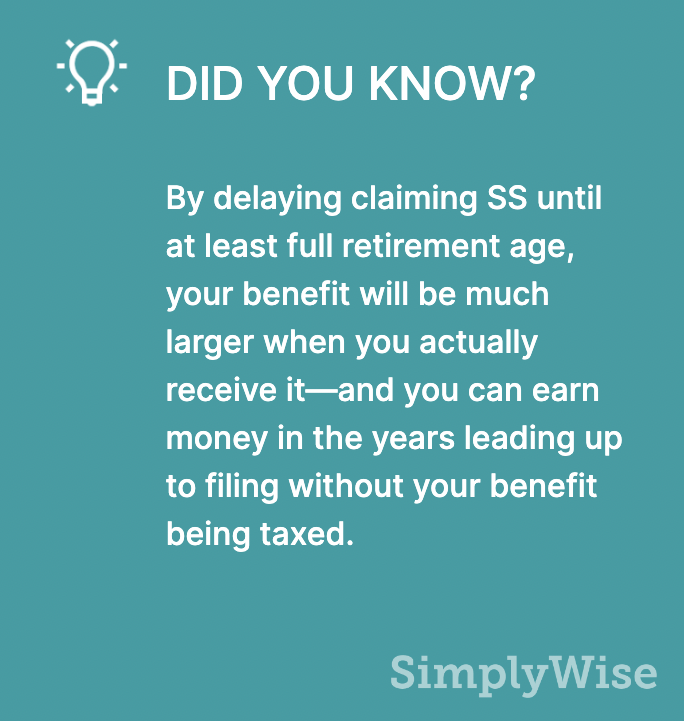
Since the rapid spread of the coronavirus around the world, many people are losing jobs and fearing for the economy. The Social Security Administration, though not created specifically to deal with pandemics, is a social safety net to help Americans—especially American workers—through times of crisis. But in order to keep the Social Security benefit funds viable for everyone who needs them, the administration must in some cases reduce and even tax the benefits of those who earn higher incomes.
In fact, 3.4% of the funding for beneficiaries in 2018—about $35 billion—came from taxing Social Security benefits.
Why is Social Security taxed?
It might seem like double dipping for the Social Security administration to fill the coffers by taxing earnings and then taxing benefits as well. It is more understandable when you look at the purpose of Social Security. President Franklin D. Roosevelt created the Social Security Administration in 1933 by executive order. The country was in the midst of the Great Depression that had left millions jobless and homeless. Social Security was intended to be exactly what it says—a source of security for society when people need help and support. This might include the elderly and retired, the unemployed and the disabled, along with their families.

Everyone who pays into the system receives its benefits. It is called an “entitlement” because the federal government determined that workers who pay into the system and are eligible are entitled to receive its benefits regardless of their income level. Employees pay 6.2% of their annual gross income into the Social Security funds, up to $137,700 (in 2020). If they earn above that, they don’t have to pay Social Security tax on the rest. Their employers also pay 6.2% of the employees’ annual gross income.
Self-employed people must pay 12.4% to compensate for the amount their employers would have paid. Everyone who is eligible for benefits receives them.
In 1983, however, it became clear that the system might run low on funds. The Social Security system depends on current workers to fund older generations’ retirement. But the government could see that the Baby Boomer generation was much larger than GenerationX and they were living longer than previous generations. There would not be enough workers to fund this large generation of retirees. Consequently, Congress voted in 1983 to make a number of changes to Social Security policy including taxing the benefits of those with higher incomes.
How is Social Security taxed?
If you are below full retirement age and are receiving Social Security benefits, the Internal Revenue Service will not tax your benefits, but the SSA may reduce them. The rule in 2020 is that in the years prior to your full retirement age, if you earn more than $18,240, Social Security will reduce your benefits by $1 for every $2 over that amount. The money that is taken from your benefit will be restored to you at full retirement. In the year of your full retirement, you can earn $48,600 without any reduction and then SSA will only reduce your benefits $1 out of every $3 earned above that amount.

It’s only when you reach full retirement age that taxation kicks in. At full retirement age, the SSA will no longer reduce your benefits, but if you earn a certain amount of “combined income” the IRS may tax some of your benefit. Combined income is:
- Your adjusted gross income such as wages, dividends, self-employment income, and other taxable income.
- Plus your nontaxable interest
- Plus half of your Social Security benefits
If you file your federal tax return as an individual, and your combined income is between $25,000 and $34,000, you may have to pay income tax on up to 50% of your benefits. If your combined income is more than $34,000, you may have to pay taxes on up to 85% of your benefits.
If you file a joint return, and you and your spouse have a combined income between $32,000 and $44,000, you may have to pay income tax on up to 50% of your benefits. If it is more than $44,000, you may have to pay taxes on up to 85% of your benefits. If you’re married and file a separate return, you’ll probably have to pay taxes on your benefits.

Any way to avoid the tax on Social Security benefits?
One way to possibly avoid having your benefit taxed is to delay filing for Social Security retirement benefits. People who file for Social Security at full retirement age—rather than younger—receive 100% of their benefit. If you wait until age 70 to file, you will receive Delayed Retirement Credits which increase your benefit by 8% each year until you reach 70. This way, your benefit is much larger when you actually receive it, and you can earn money in the years leading up to filing without your benefit being taxed.
Moreover, Social Security bases your benefit on your top 35 earning years before you file, so if you make more money in those last years, your benefit will be higher.
Some investment advisors have other recommendations such as keeping money in a Roth IRA which is build on after-tax dollars, or investing in a Qualified Longevity Annuity Contract in some cases.
The Social Security Administration strongly recommends you see a financial advisor to get the most out of your Social Security benefit. Many factors play into this planning including:
- How long you intend to keep earning money, and how much
- How long you expect to live. (Social Security has life expectancy tables to help you estimate.)
- What other sources of income are available to you, such as investments. And whether you canstagger taking money from these income sources to maximize your income.
- Your eligibility for benefits on someone else’s record. Surviving spouses and some ex-spouses can receive benefits on the deceased workers’ record and delay filing for their own retirement until later.
Those are only a few of the considerations that enter into the decision about when to file for your benefit.
Do you have to pay income tax on Social Security benefits?
Each January, you will receive a Social Security Benefit Statement (Form SSA-1099) showing the amount of benefits you received in the previous year. You can use this Benefit Statement when completing your federal income tax return to find out if your benefits are taxable. If you don’t have your form SSA-1099 or SSA-1042S for the previous tax year, you can get an instant replacement using your online My Social Security account. If you don’t already have an account, you can create one online. To get your replacement Form SSA-1099 or SSA-1042S, select the “Replacement Documents” tab.
If you do have to pay taxes on your Social Security benefits, you can make quarterly estimated tax payments to the IRS or choose to have federal taxes withheld from your benefits.
There are many ways to reduce the impact of taxation on your Social Security benefits, but the good news is if your benefits are being taxed, you’re one of the fortunate ones who doesn’t have to heavily rely on a benefit that only replaces a small portion of your income. And that’s a win.